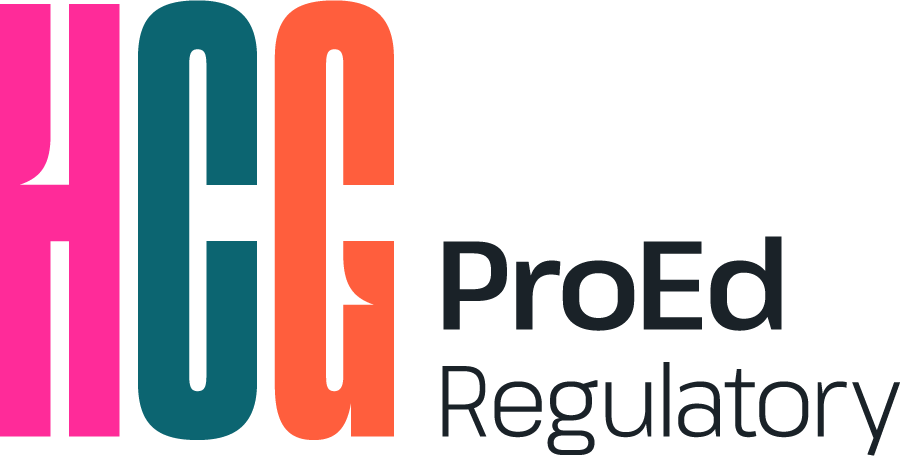ProEd Regulatory’s 4 Key Project Management Principles for Successful AdCom Preparation
Preparing for an FDA advisory committee meeting (AdCom) is a daunting task that can take anywhere from 3 to 9 months of intense preparation. At ProEd Regulatory, we partner with our clients to ensure that they’re well prepared to present their data and answer questions from the committee with confidence and poise. Our clients have an important scientific story to tell, and they need to be prepared to present it effectively and defend it so that regulators, their advisors, and the public will support approval. In this blog post, we’ll explore 4 fundamental project management principles that we use when helping our clients prepare for an AdCom.
Establish a Clear Goal & Objectives
When working with our clients, we always begin each project with a kickoff strategy meeting where we set clear goals, go over the timeline, identify potential issues, and start to determine how they want to tell their story to the advisory committee and to the world. We do this in a collaborative setting where we carefully review the client’s data, develop key messages, and conduct a SWOT analysis. Our kickoff meetings are usually 2 days in length, and we, as project managers, put together an agenda for each day that serves as a guide to keep us all on track. The kickoff meeting provides the team with clear roles and responsibilities as well as goals and objectives for what needs to be done throughout the course of the project, along with key dates to keep in mind.
Effective Communication
Effective communication with your internal team and client team is critical for success. The team, which is composed of researchers, clinicians, regulatory affairs experts, and others, must work harmoniously to achieve project milestones. Organizing this cross-functional team and maintaining effective communication channels are essential project management practices. Regular updates, transparent discussions, and well-defined roles help prevent misunderstandings and keep projects on track. In the regulatory world, where rapid responses are often necessary, seamless communication ensures that critical decisions are made with accurate information and in a timely manner.
Organizing this cross-functional team and maintaining effective communication channels are essential project management practices. Regular updates, transparent discussions, and well-defined roles help prevent misunderstandings and keep projects on track.
Progress Tracking
At each strategic milestone throughout the project, we challenge your team and facilitate discussions to build consensus and leverage critical feedback that advances your strategy and prepares the team for success. We set goals for each major milestone, and we track your progress toward meeting those goals and deadlines. We do this during weekly meetings and provide status updates. For example, key milestones during these projects are the mock meetings that are designed to mimic the FDA AdCom. The sponsor/client team gives their core presentation, which tells their story as to why this drug should be approved by the FDA. Then the mock panel, composed of clinical experts in their field, asks the client team questions regarding their data. Through the mock meetings, we can identify gaps in the story and refine our strategy. Tracking the team’s progress through these mock meetings and measuring performance at every stage are crucial to staying aligned with project objectives. Our proven processes are built on 25 years of experience and are purposefully designed to drive consensus and keep you on a trajectory of continuous progress.
Tracking the team’s progress through these mock meetings and measuring performance at every stage are crucial to staying aligned with project objectives. Our proven processes are built on 25 years of experience and are purposefully designed to drive consensus and keep you on a trajectory of continuous progress.
Problem Solving With Preparedness
Challenges are inevitable in any project, but in preparation for an AdCom, where the path to success is often complex and nuanced, being a proactive problem solver is a must. Shifting timelines, FDA feedback, and limited availability of key members of the team are just a few examples of challenges that can arise. By exercising flexibility and having well-considered plans in place, our project managers navigate these obstacles with agility and minimize their impact. Anticipating potential roadblocks and having contingency plans in place can mitigate disruptions and ensure that projects stay on course. These are just a few ways in which we problem-solve with preparedness.
ProEd’s Proven Approach to Project Management
By adhering to these 4 project management principles, we help our clients prepare for one of the most challenging and stressful regulatory interactions they will face, and in the process, we can enhance their ability to deliver innovative treatments to patients in need. Clear objectives, effective communication, diligent progress tracking, and strategic problem-solving form the foundation upon which successful projects are built. By embracing these principles, we help transform data into approvals.

Samantha Procell
Senior Account Manager
Samantha has more than 5 years of client service experience and is an excellent communicator. She works closely with both internal and client teams to ensure success in all facets of projects, from slide management to operations, timeline management, agenda development, meeting planning, and logistics. She also is a liaison with ProEd’s social media communications. Samantha has a BS in Public Relations with a minor in Advertising from Texas Tech University.
Connect with Samantha on LinkedIn.

